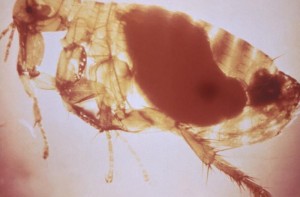Cat tests positive for plague in Southwest Colorado
Health officials in Durango are warning residents about a cat that tested positive for plague, according to San Juan Basin Health Department media release.
Health officials say the cat is from the Bayfield area and that there is no human infections. The health department has posted signs in the area to alert residents.
Plague is endemic in our Southwestern Colorado community and throughout the western United States. It exists within the natural, complex cycle of wild rodents and rabbits and their fleas. Infected domestic animals generally have a history of outdoor exposure in rural areas. Free roaming pets have been increasingly implicated in human cases as they bring infected fleas into the home.
Cats are highly susceptible to plague. Typical symptoms for cats are fever, lethargy and swollen lymph nodes. Seek professional veterinary care for such animals and do not handle suspiciously sick pets without gloves. Cats may transmit plague to humans through transporting infected fleas into the home. If a cat is infected, they may spread the disease through biting or scratching a human or by direct contact with their infected tissue. Dogs are highly resistant to plague and do not transmit plague directly but can transport infected fleas into the home, health officials report.
Plague is a disease that affects humans and other mammals. It is caused by the bacterium, Yersinia pestis.
The plague bacteria can be transmitted to humans in the following ways: flea bites, contact with contaminated fluid or tissue or infectious droplets.
Plague symptoms depend on how the patient was exposed to the plague bacteria. Plague can take different clinical forms, but the most common are bubonic, pneumonic and septicemic.
In bubonic plague, the type typically seen after a bite of an infected flea, patients develop sudden onset of fever, headache, chills, and weakness and one or more swollen, tender and painful lymph nodes (called buboes). The bacteria multiply in the lymph node closest to where the bacteria entered the human body. If the patient is not treated with the appropriate antibiotics, the bacteria can spread to other parts of the body.
The San Juan Basin Health Department advises the public to consult a physician if sudden unexplained illness occurs.
For more infectious disease news and information, visit and “like” the Infectious Disease News Facebook page
















[…] Cat tests positive for plague in Southwest Colorado […]
[…] http://www.theglobaldispatch.com/cat-tests-positive-for-plague-in-southwest-colorado-71789/ […]